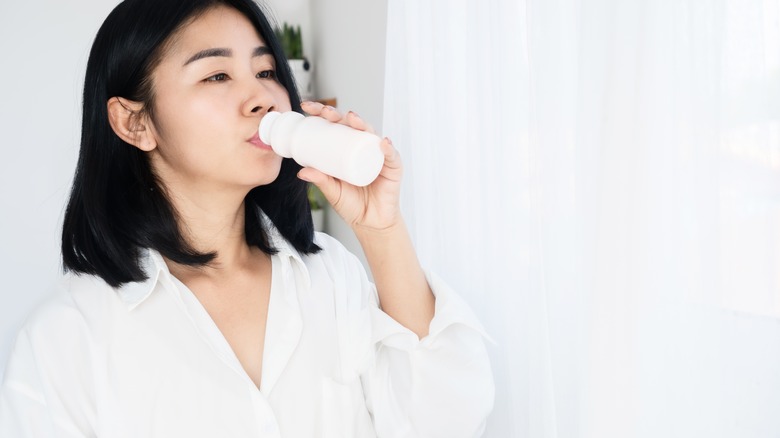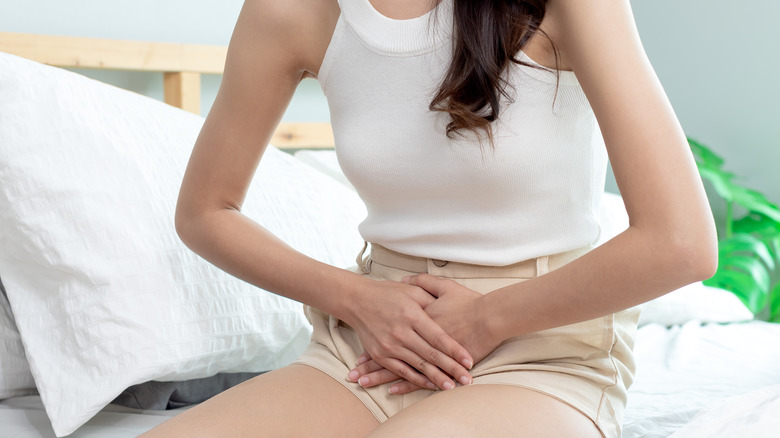Can Probiotics Help You Treat A Yeast Infection?
Probiotics are live microorganisms, typically made of bacteria or yeasts similar to the beneficial ones naturally found in the human gut, per the Cleveland Clinic. They can also be found in various food sources, including fermented foods like yogurt, kefir, kimchi, sauerkraut, and miso soup. On the other hand, probiotics can also be taken as dietary supplements, usually in capsule or powder form. The most common types of probiotic bacteria include Lactobacilli and Bifidobacteria, which are both naturally found in the human gut, as per a 2016 study published in the journal Veterinary Immunology and Immunopathology. These bacteria help maintain a healthy balance of microorganisms in the gut, which is important for proper digestion, immune function, and overall health.
In addition to assisting with gut health, some people believe that probiotics may help eliminate yeast infections. Also known as vaginal candidiasis, vaginal yeast infections can cause intense itching and inflammation. Here's everything you should know about using probiotics to help treat your yeast infection.
How do probiotics help with yeast infections?
One of the potential benefits of probiotics is their ability to support a healthy balance of bacteria and yeast in the body. This is particularly relevant in the case of yeast infections, which, according to the Mayo Clinic, occur when there is an overgrowth of the fungus, Candida, in the body. While more research is needed to fully understand the role of probiotics in preventing or treating yeast infections, some studies have suggested that they may be beneficial.
One 2015 study published in the Global Journal of Health Science found that when mixed together as a vaginal cream, honey, and yogurt had similar positive results to that of clotrimazole, an antifungal medication. Another 2020 study published in the Journal of Functional Foods found that a combination of probiotics and antifungal medication was more effective in treating recurrent yeast infections than antifungal medication alone.
While probiotics may be a helpful addition to a comprehensive treatment plan for yeast infections, they should not be relied on as the sole treatment. Also, note that not all probiotic supplements are the same and they all have different effects. Therefore, it's vital to consult with your doctor first.
Other ways to treat a yeast infection
If you suspect you have a yeast infection, seeing a healthcare provider for an accurate diagnosis and appropriate treatment is important. In some cases, recurring yeast infections may indicate an underlying medical condition, such as diabetes or a weakened immune system. For general vaginal yeast infections, antifungal medication is the most common and effective way to treat yeast infections, says the Mayo Clinic. They are available as over-the-counter creams or oral prescription medications. It's important to follow the instructions for use and complete the full course of medication, even if symptoms improve before the medication is finished.
In addition to medication, several lifestyle changes may help to prevent and treat yeast infections. Avoiding douching is vital since it can disrupt the natural balance of bacteria in the vagina and increase the risk of yeast infections. In addition, wearing loose-fitting clothing and cotton underwear can help prevent yeast growth.



